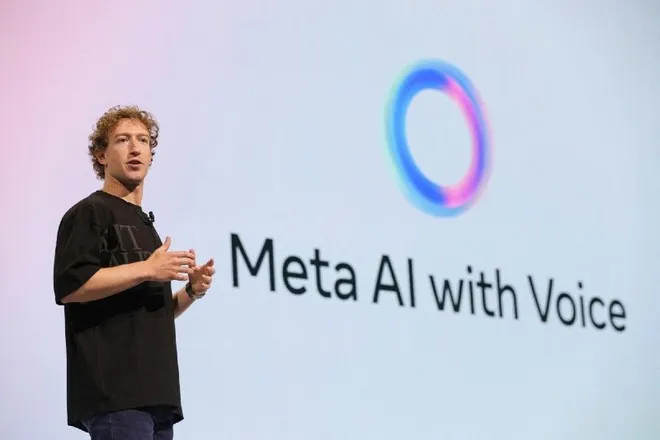

Mark Zuckerberg Bets Billions on ‘Startup Mode,’ Snags Top AI Talent for Meta
In the fast-evolving landscape of artificial intelligence, the competition to build smarter, faster, and more powerful systems has never been more intense. Tech giants like Google, Microsoft, and OpenAI are investing heavily to capture dominance in this next wave of innovation. Not to be left behind, Mark Zuckerberg has declared that Meta is going into what he calls “startup mode”—a bold strategy backed by billions of dollars in funding and the recruitment of top AI talent from around the world.
This ambitious move has put Meta in the spotlight as it fights to reshape its identity from a social media giant to a powerhouse in artificial intelligence and superintelligence.
What “Startup Mode” Means for Meta
When Zuckerberg says Meta is going into startup mode, he is signaling a shift away from the slower, bureaucratic operations of a massive public company and instead embracing the agility, risk-taking, and innovation culture of a Silicon Valley startup.
This mindset involves:
-
Rapid experimentation with new AI models.
-
Leaner teams focused on breakthrough innovation rather than incremental updates.
-
Billions of dollars in investment targeted at infrastructure, computing power, and human talent.
-
Emphasis on culture—creating a high-energy environment where teams move fast and are not afraid to fail.
For a company the size of Meta, this shift is both radical and risky. But for Zuckerberg, it’s a necessary gamble if Meta wants to stay ahead in the superintelligence race.
Why Zuckerberg Is Betting Big on AI
Over the last decade, Meta has faced increasing challenges. Its bet on the metaverse has not yielded the financial results Zuckerberg hoped for, while rivals like OpenAI have stolen the spotlight with products like ChatGPT.
By pivoting aggressively toward AI, Zuckerberg is betting that artificial intelligence will become the foundation of the next era of technology—an era where digital assistants, autonomous systems, and generative AI transform how humans interact with machines.
Meta’s strength lies in its massive global user base across Facebook, Instagram, and WhatsApp, combined with one of the world’s most robust computing infrastructures. With the right AI talent, these assets could allow Meta to leapfrog competitors and build groundbreaking AI systems.

Recruiting the Brightest Minds in AI
Perhaps the most striking part of Meta’s startup mode strategy is its ability to recruit some of the top names in the AI field. Recent reports indicate that Alexandr Wang, the brilliant founder of Scale AI, and Nat Friedman, the former CEO of GitHub, have joined forces with Meta to lead its AI ambitions.
-
Alexandr Wang brings expertise in managing the vast datasets and infrastructure required to train cutting-edge AI systems. His company, Scale AI, has powered the development of many leading models in the industry.
-
Nat Friedman has a reputation for building and leading developer communities. His leadership at GitHub transformed it into a vital hub for innovation and open-source collaboration.
By adding such talent to Meta’s ranks, Zuckerberg is making it clear that he intends to attract the best and brightest minds to accelerate Meta’s journey toward AI dominance.
Billions Poured Into AI Infrastructure
One of the key enablers of AI development is raw computing power. Training massive large language models (LLMs) and advanced neural networks requires vast numbers of GPUs and custom-designed chips.
Meta has reportedly invested billions in:
-
Supercomputers and data centers optimized for AI workloads.
-
Custom hardware designed to scale training efficiency.
-
LLaMA, Meta’s large language model, which is already competing with models from OpenAI and Anthropic.
-
Cloud partnerships to expand AI development beyond Meta’s in-house infrastructure.
This financial firepower ensures that Meta can compete head-to-head with Microsoft, Google, and Amazon in the race for AI infrastructure supremacy.
The Role of Open-Source AI in Meta’s Strategy
A defining feature of Meta’s AI approach is its commitment to open-source development. By releasing versions of LLaMA for the developer community, Meta has positioned itself as a champion of collaboration and transparency in AI research.
This strategy mirrors how Android grew to dominate the mobile operating system space by being open-source. By empowering researchers, startups, and enterprises to build on its models, Meta is betting that it can become the default platform for AI innovation.
Risks of Zuckerberg’s Startup Mode
As bold as the strategy sounds, startup mode comes with significant risks for a company the size of Meta:
-
Regulatory hurdles: Governments worldwide are intensifying scrutiny over AI development, especially regarding misinformation and ethical use. Meta, already criticized for its handling of user data, may face even greater regulatory pressure.
-
Financial strain: Billions are being poured into AI infrastructure without immediate returns, raising concerns among investors about long-term profitability.
-
Fierce competition: Rivals like Google DeepMind, OpenAI, and Anthropic have established early leads in AI research and commercialization.
-
Ethical challenges: The pursuit of superintelligence raises critical concerns about safety, bias, and long-term societal impacts.
Despite these risks, Zuckerberg appears willing to accept short-term setbacks for the promise of long-term dominance.

How Investors Are Responding
Investor reactions to Zuckerberg’s billion-dollar AI gamble have been cautiously optimistic. While some worry that Meta’s heavy spending resembles its risky bet on the metaverse, others argue that this time the payoff could be far larger.
Market analysts highlight that AI is not a speculative concept—it is already being deployed across industries. If Meta can establish itself as a leader in the field, it could secure trillions in long-term value.
The Bigger Picture: AI as the Future of Meta
Zuckerberg’s embrace of startup mode signals a broader transformation of Meta’s identity. Once seen primarily as a social media company, Meta is repositioning itself as a technology and AI pioneer.
If the company succeeds, Meta could play a central role in defining how superintelligent systems interact with humans, potentially impacting industries from healthcare to education to entertainment.
Can Meta Win the AI Arms Race?
The billion-dollar question remains: Can Meta really win this race?
While its rivals have a head start, Meta’s combination of global scale, open-source strategy, and top-tier talent gives it a fighting chance. By operating in “startup mode,” Meta hopes to overcome the inertia of being a large corporation and rediscover the spirit of bold innovation that once made Facebook a household name.
Final Thoughts: Zuckerberg’s Gamble for the Future
In declaring that Meta is going into startup mode, Mark Zuckerberg is not just trying to reinvent his company—he is making a bet on the future of technology itself. With billions of dollars on the line, and some of the brightest minds in AI now on his team, the stakes have never been higher.
Success could transform Meta into a global leader in artificial intelligence, rivaling or even surpassing Google and OpenAI. Failure could cost billions and further damage Zuckerberg’s reputation as a visionary.
Either way, the world is watching closely, and the race toward superintelligence has officially entered a new, more competitive phase—with Meta now running at full speed.


















